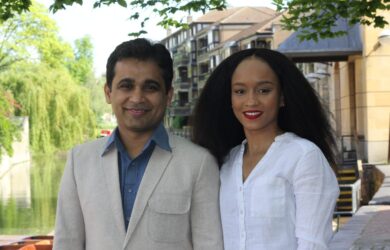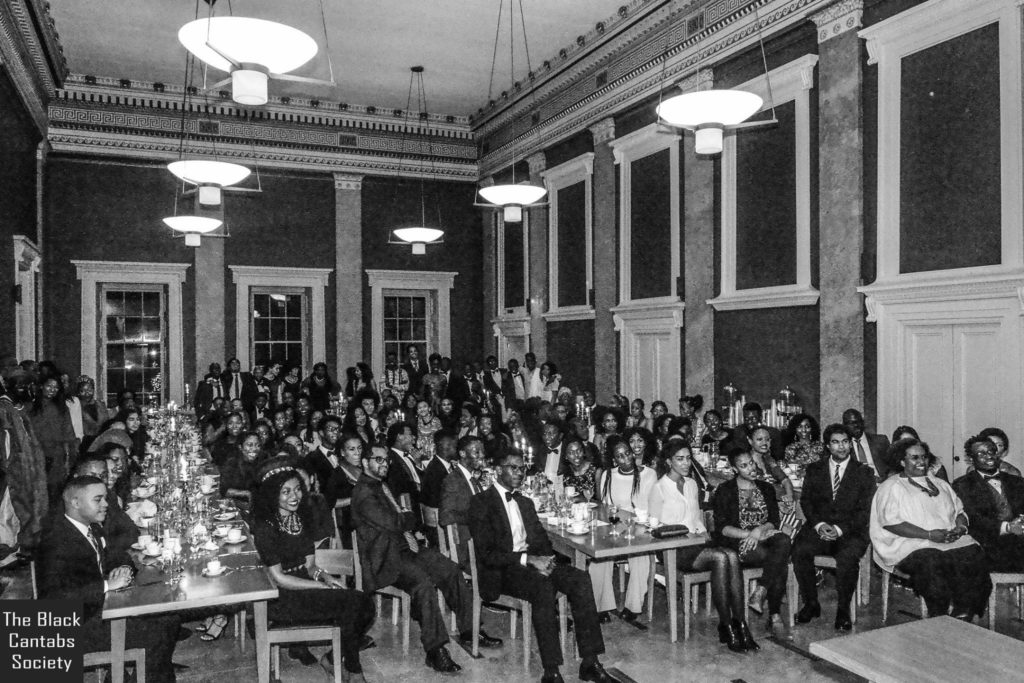
Gates Cambridge scholars are celebrating Black History Month with a raft of different events.
October is Black History Month and Gates Cambridge Scholars have organised a raft of events to celebrate and raise awareness, ranging from speed mentoring sessions to a Black History Month Comedy Night and a panel discussion on anti-colonial research and activism.
The events, most of which are internal Gates Cambridge events, kick off on 17th October with BAME speed mentoring sessions at Newnham College where BAME scholars will share their skills with BAME undergraduates.
On 18th October there is a Black History Month Comedy Night** hosted by Cansu Karabiyik [2016], founder of Laugh4Change, a charity that raises money for refugees through stand-up comedy events.
On 24th October there will be a panel discussion** on anti-colonial research, activism and making universities more inclusive. Take back the academy! features Peter Sutoris, Jessica Fernández de Lara Harada and Reetika Subramanian.
Reetika [2019], who is doing a PhD in Multi-disciplinary Gender Studies, will speak about community-based action research in Mumbai, focusing in particular on photography and documenting migrant workers.
Jessica [2016], who is doing a PhD in Latin American Studies, will speak about overlooked minorities in the past and present, and the value of articulating their unspoken narratives.
Peter [2015], who is doing a PhD in Education, will discuss the intersection of education and environmental activism in spaces affected by environmental degradation, including communities in Pashulok, India, and South Durban, South Africa, and related curriculum reform.
Another speaker is Amal Bider, from Goldsmiths’ Anti-Racist Action, who will speak on the topic of occupying university spaces in the service of decolonisation.
The month’s events finish on 25th October with a talk by Sohini Alg-Nijjar, an immigration specialist, on the issues facing international students.
Research
Several current Gates Cambridge Scholars’ research focuses on issues relating to black history. They include:
Siyabonga Njica [2018] whose PhD in History is on the role of exiled artists in South Africa’s liberation struggle. Siyabonga is a well-known poet in South Africa who has been actively involved in student movements which are part of the ongoing response to the legacy of the apartheid system in South Africa. At the University of Cape Town, where he was an undergraduate, Siyabonga and fellow activists led poetry and music sessions that followed heated political discussions by student-led gatherings aimed at fostering a culture of debate and critical thinking. He says: “Under the banner of ‘Imbizo’ we were using the arts to grapple with major political issues in South Africa such as the unresolved land question which remains a thorny issue and is at the heart of much public discussion and debate in South African politics today.”
Anna Nti-Asare-Tubbs [2017] is doing a PhD in Sociology which explores the stories of the mothers of Malcolm X, Martin Luther King Junior and James Baldwin – Alberta King, Louise Little and Emma Berdis Jones. Anna plans to turn them into a mainstream book so they are more widely known and their influence and impact given the acknowledgement they deserve. Anna says: “Malcolm X, James Baldwin, and Martin Luther King Jr all credited their mothers in different ways throughout their lives. However, scholars have chosen to ignore that.”
Collin Edouard [2019] has just started his MPhil in Music aims to change music education and make it more inclusive, to challenge the received idea that western classical music is the highest form of music and that other cultural forms are somehow of lesser value. Collin whose passion is rooted in the Haitian music he grew up listening to at home, says: “I want to break the hidden curriculum in music and music education that suggests western art forms are the most important forms of music we can teach.”
Another new scholar is Lolade Aliyu Siyonbola [2019] whose PhD in Sociology seeks to understand how the identification choices of Nigerian second-generation immigrants influence how well they assimilate, their contributions to their host countries and the role of the Nigerian diaspora in Nigeria’s development. Lolade, who was born in Lagos, but grew up mainly in the US, set up her own cultural institute to teach African languages to diaspora communities. That institute has now developed an online platform. She says: “The aim is to build a community of like-minded people and to ensure those who visit Africa have local support for the integration process. If people have mastered a local language and have a network in place their experience when they travel back will be richer and they will be more likely to return or spend more time there. Knowing a language makes you feel less of an outsider.”
And in the more distant history, Chioma Ngonadi [2015] is doing a PhD in Archaeology on the origin and development of farming over the longue duree in Lejja,southeastern Nigeria.
Alumni
Previous scholars have included Wale Adebanwi [2003], the first Black Rhodes Professor of Race Relations at St Anthony’s College, Oxford, and the Director of the African Studies Centre at the University of Oxford. Wale, who did his PhD in Social Anthropology, has written numerous books on Nigerian history, including Authority Stealing: Anti-Corruption War and Democratic Politics in Post-Military Nigeria and Yoruba elites and ethnic politics in Nigeria: Obafemi Awolowo and corporate agency, the first academic book on one of Africa’s most powerful and progressive elites.
Inclusion
Scholars have also been very active on inclusion issues within the university. Njoki Wamai, who did her PhD in Politics and International Studies and was awarded the Bill Gates Sr Prize, co-founded Black Cantabs, a historical and research-focused society that aims to highlight and share the past and present stories, experiences and achievements of the University's Black students. Through its activities, the society has documented and featured the diverse and rich histories of these pioneering scholars. Njoki [2012] is now Assistant Professor in the International Relations Department at Kenya's oldest private university United States International University-Africa.
Current scholars have also been active in promoting greater inclusion at the University of Cambridge. Harum Mukhayer [2016] was recently Highly Commended for her outstanding contribution to Inclusive Practice in the Outstanding Student Contribution to Education Award selected by the Cambridge Centre for Teaching and Learning.
Harum [2016] was recognised for a range of activities for both her college and the University as a whole, including her leadership of Decolonise Law initiatives with law students. Harum was also President of the African Society of Cambridge University from 2016-2017, following in the footsteps of Johanna Riha [2011], who was elected the Society’s first President in 2013. Njoki Wamai was also a key figure in the ASCU’s formation.The Gates Cambridge Trust has supported the ASCU’s annual Africa Together event, a collaborative effort which not only brings together African groups in Cambridge but engages those in academic, public and private organisations across the UK.
This year’s Black History Month celebrations therefore build on the legacy of inspirational figures within the Gates Cambridge community, driving the socially transformative mission of the scholarship forward.
*Picture credit: Black Cantabs
**The panel discussion and comedy night are open to all members of the university and tickets are being sold on the door. The panel discussion takes place from 7.30-9pm on 24th October in the Gates Room at the University Centre. The Comedy night takes place at Pembroke College, New Cellars from 7.30-9.30pm on 18th October.
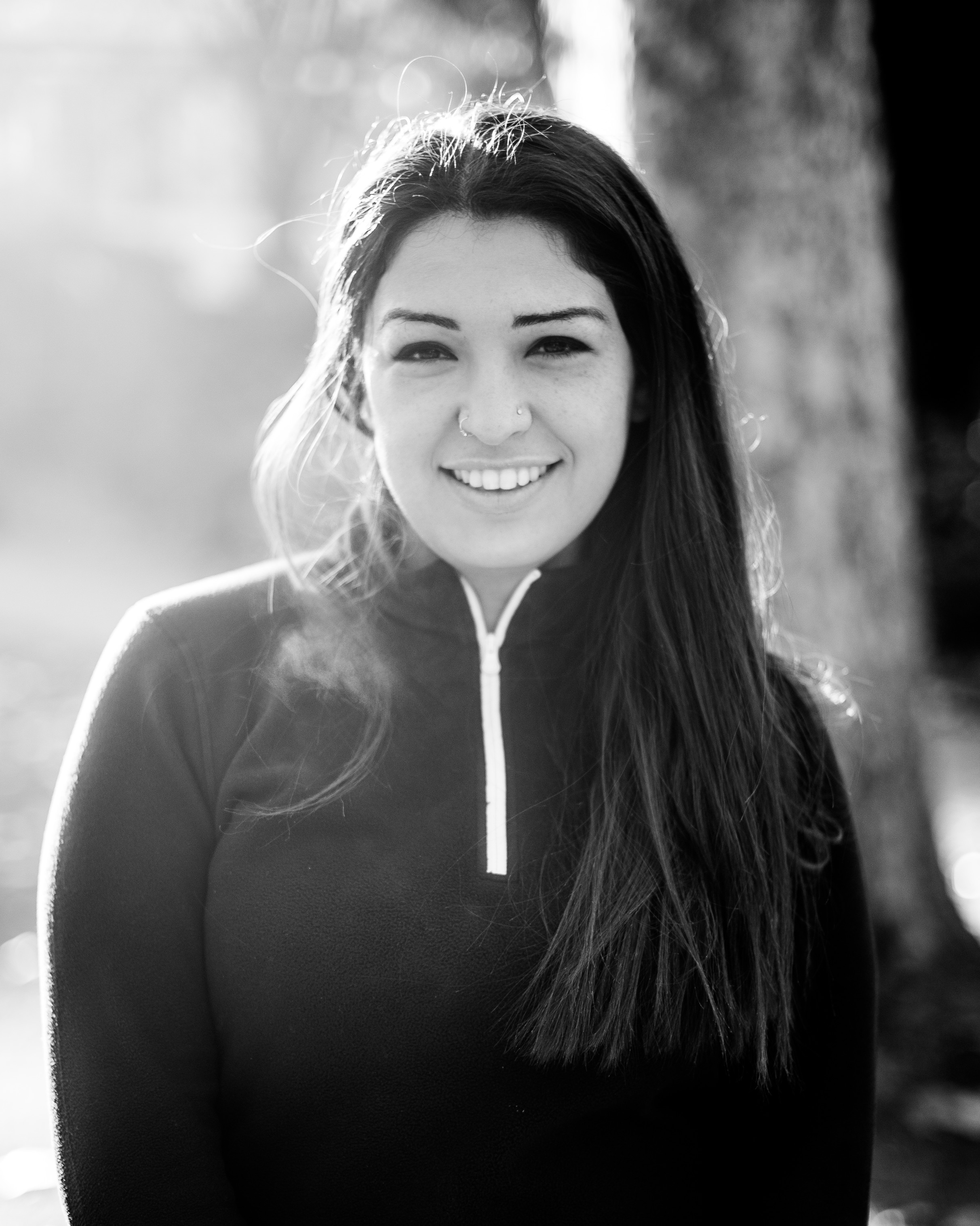
Cansu Karabiyik
- Alumni
- Denmark
- 2016 PhD Medical Science @ CIMR
- Pembroke College
I completed my BSc and MSc in Biomedicine at the University of Southern Denmark, where I developed a great fascination for neuroscience. Therefore, I chose to conduct my BSc thesis in a neurobiology lab working on a treatment for stroke. During my MSc degree, I had the good fortune to study at both UCSD and in Portugal. Following this, I decided to spend a year gaining additional research experience. I came to Cambridge in July, 2015 to work as a research assistant in Prof. David Rubinszteins lab. Here, I had the opportunity to combine cell biology with neurobiology and learned that understanding cell mechanisms creates options for treating severe diseases. Currently, there are no effective treatments for neurodegenerative disorders. During my PhD, I will focus on the cellular degradation mechanism, autophagy. Induction of this pathway has the ability to clear the toxic aggregates that are the hallmarks of neurodegeneration in disorders such as Parkinson’s disease. I hope that this will bring us closer to treating these devastating diseases that leave individuals impaired and dependent. I am excited to undertake my PhD in such a dynamic and innovative environment and to join the diverse and compassionate Gates community.
Previous Education
University of Southern Denmark
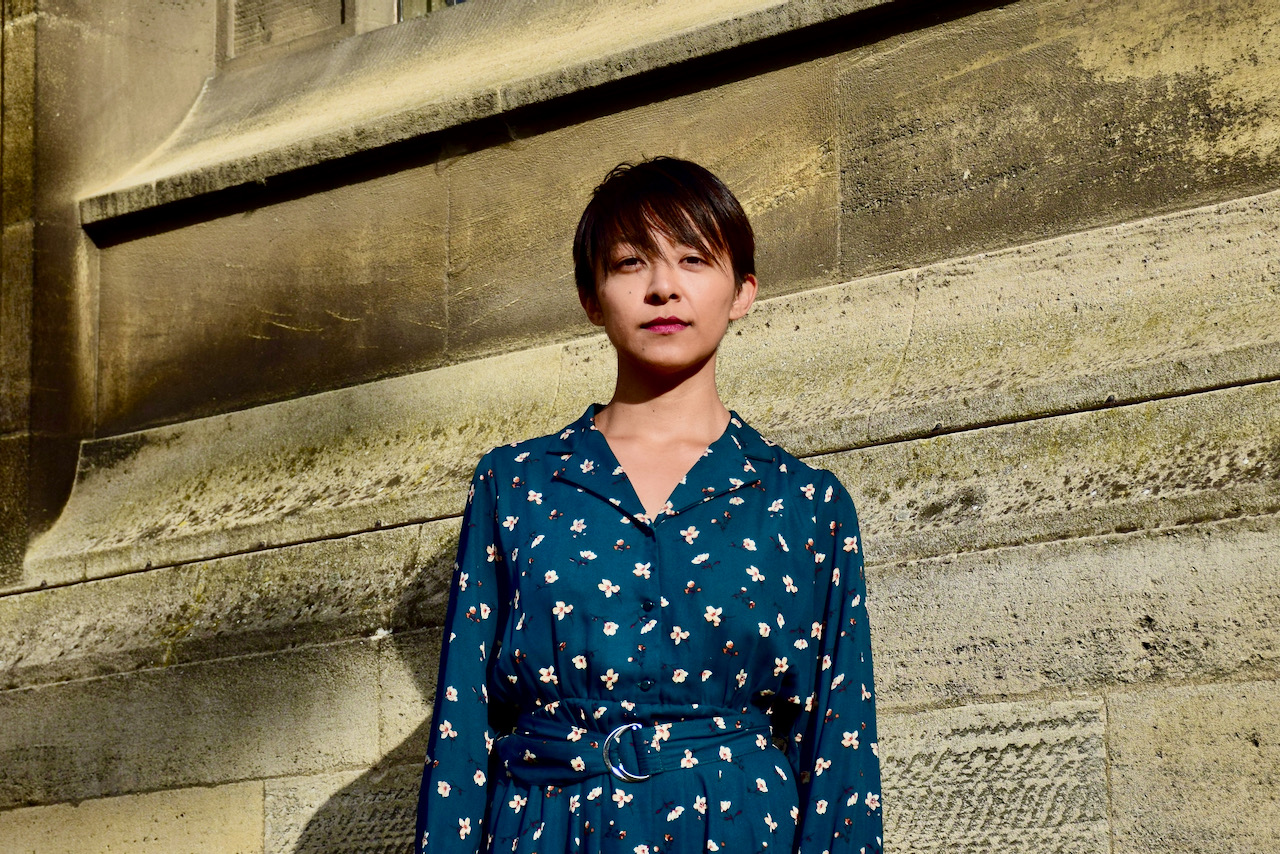
Jessica Fernandez De Lara Harada
- Alumni
- Mexico
- 2016 PhD Latin American Studies
- Emmanuel College
Jessica is a qualified lawyer and human rights defender with over five years of experience in legal practice, research and advocacy work. Her doctoral research examined the overlooked historical experience of Asians in Latin America. In particular, she focused on the experiences of Mexicans of Japanese origin across five generations in relation to the 'mestizo' racial system, citizenship and state violence, as well as repertoires of resistance in Mexico. This study built upon her master’s dissertation on graphic novel representations of mestizaje, the positioning of afro-descendants, and the operation of race and racism in Mexico from a transnational lens. Her research interests include the trans-pacific history of racialised exclusion and belonging, nation-state building, and imperial and colonial formations in twentieth century Mexico. Previously, Jessica completed an MA in Latin American Studies (with Distinction) at University College London, and a BA (First Class Honours) in Law at Universidad Nacional Autónoma de México. She was a Research Fellow at the Centre for Historical Studies at El Colegio de México; co-founder of the CRASSH Graduate Research Group 'Power and Vision: The Camera as Political Technology'; and co-organiser of the conference Memories in Transit, supported by The Centre for the Study of Global Human Movement, at the University of Cambridge, and the British Academy.
Previous Education
University College London
Universidad Nacional Autonoma de Mexico
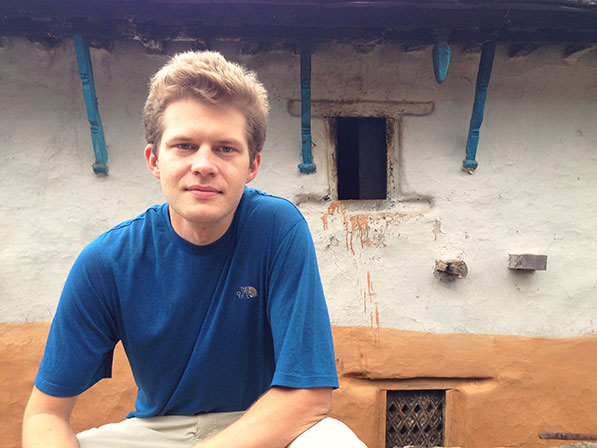
Peter Sutoris
- Alumni
- Slovakia
- 2015 PhD Education
- Clare Hall
Peter graduated with a degree in History from Dartmouth College in 2012. Originally from Slovakia, he has lived and worked in South Asia, the Pacific, the Middle East and in the Balkans. He is the author of 'Visions of Development,' an upcoming monograph on the portrayal of themes of development in documentary films made by the Government of India, as well as 'The Undiscovered Country,' a documentary film on challenges to public education in the Marshall Islands. He has worked with Youth Bridge Global, an organization aiming to bridge ethnic divides in Bosnia and Herzegovina through theater, The Learning Center of Kathmandu, a grassroots NGO in Nepal, and PharmaSecure, a public health social enterprise in New Delhi. Much of Peter's research and professional work revolves around the link between education and international development, and he is excited to join Cambridge's Faculty of Education to pursue this interest further.
Previous Education
Dartmouth College

Siyabonga Njica
- Alumni
- South Africa
- 2018 PhD History
- Darwin College
I grew up in Gugulethu township, a black residential area that was established to accommodate migrant workers and families that were forcefully relocated from Cape Town’s inner city under the Group Areas Act (1950) during apartheid in South Africa. Growing up, I have always been interested in ideas about movement, black subjectivity and how the oppressed have historically reflected on the meaning of freedom – from the blues in black America to the work-songs of unskilled labourers in South Africa. I have also been interested in the ways in which arts and culture became a premium nation-building tool that galvanized the international community around the vices of institutionalised racial segregation and the violation of human rights under apartheid. At the University of Cape Town, I was awarded the Mellon Fellowship and became a visiting scholar at Emory University where I conducted research on the role of literature and jazz music in South Africa’s liberation struggle. For my graduate studies at Cambridge, I am interested in reimagining how we think about South Africa’s recent past by gesturing towards alternative archives and historical frameworks in order to reveal how exiled South African artists became key cultural players at the height of intellectual diasporic engagements between African, Caribbean and North American writers in the second half of the twentieth century. Consistent with the values of the Gates Cambridge Scholarship, my research aims to promote the teaching, learning and understanding of African people’s creative and intellectual contribution in their fight for freedom and social equality.
Previous Education
University of Cape Town
University of Cambridge
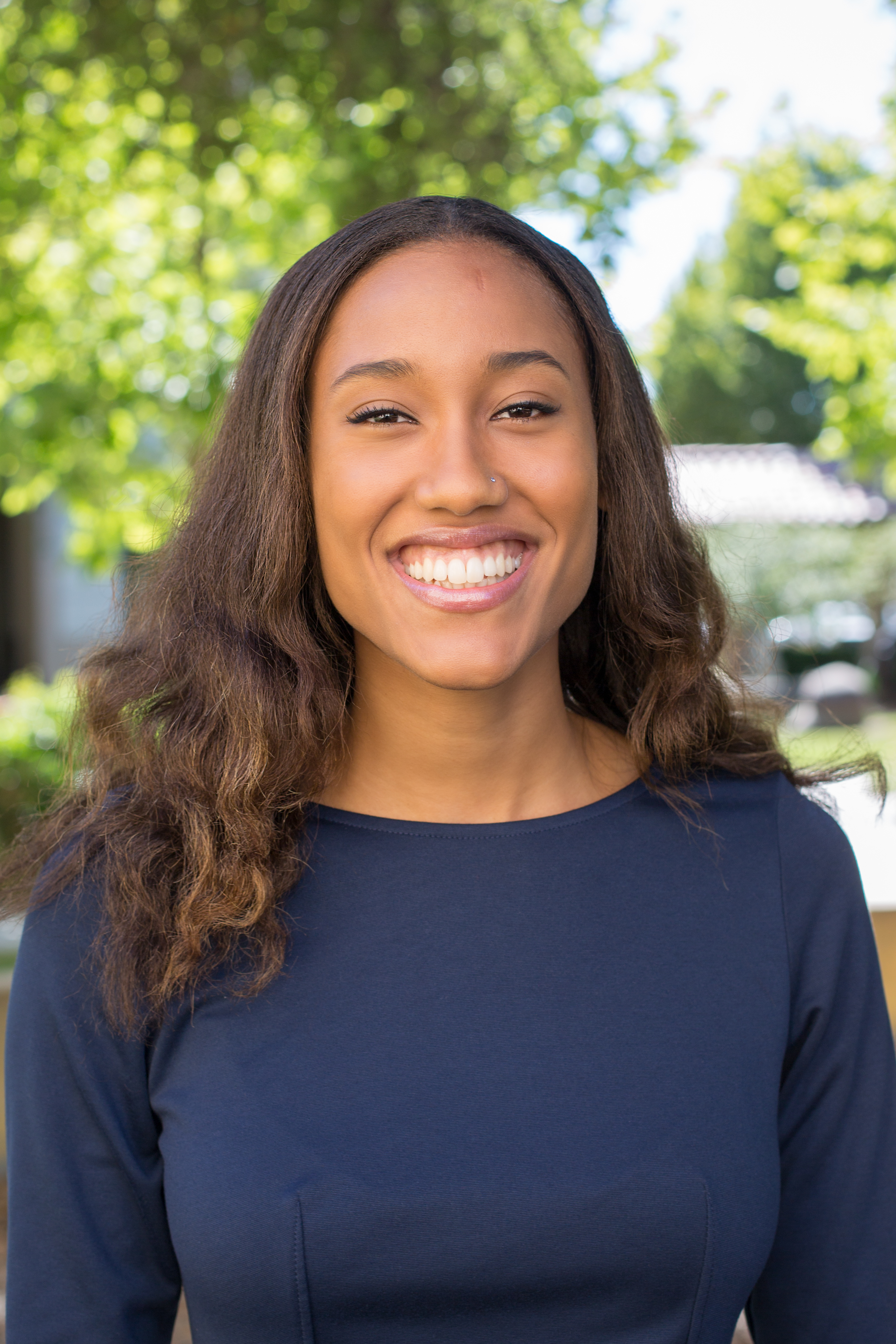
Anna Malaika Ntiriwah-Asare
- Alumni
- United States
- 2017 PhD Sociology
- King's College
Spending the first half of my life traveling from country to country including Dubai, Estonia, Mexico, Sweden, and Azerbaijan, among others, fostered a deep appreciation in me for the tremendous diversity of the world. However, in every place I noticed the ways in which narratives differed based on the perspective of the storyteller and how the national narrative depended on those with the most power. Studying Medical Anthropology, and Multidisciplinary Gender Studies in my BA and MPhil programs respectively, in addition to spending my last two years teaching Ethnic Studies to high school students in Stockton, CA, have been a part of my mission to elevate the status of marginalized narratives. As a PhD student in Education at Cambridge, I will focus on the role education has played in suppressing Black women’s narratives and how Black women have still thrived in academic spaces despite this challenge. As a Gates scholar I will use this knowledge to facilitate more inclusive learning environments and curricula.
Previous Education
Stanford University
University of Cambridge
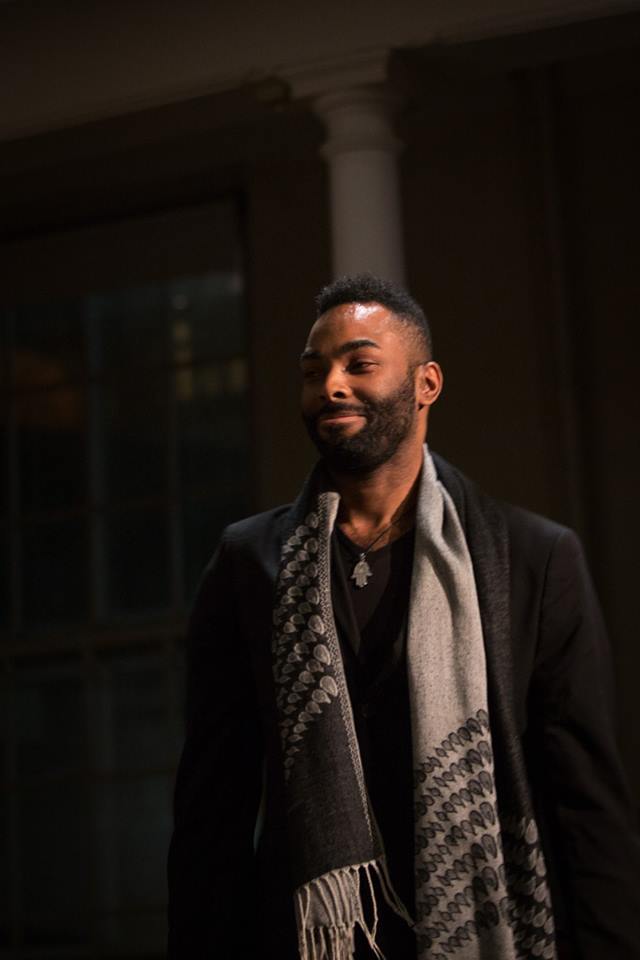
Collin Edouard
- Alumni
- United States
- 2019 MMus Music
- Wolfson College
As a first generation born American, I have always been between two cultures. Music is a large part of my cultural identity and I have always been proud of being a Caribbean man, however, music in the mainstream will often make people like me feel less American which can create a shameful attitude towards our own culture. My passion for choral music is greater than simply singing in an ensemble because when we explore music from other cultures and sing their songs after learning about the song's history, we can get a glimpse into a culture that is not our own. When we have performances highlighting Traditional Folk music from various countries and Classical music on the same stage we begin to bridge the chasm of the hidden curriculum perpetuated by many of our music educators. Each voice in a chorus has an important role and each person's identity and experiences add to the importance of music making. I want to help acknowledge composers, musicians, and lyricists who might not have had their work circulated through the mainstream as often and use those voices to break down those walls of prejudice in music education. I am humbled to join the Gates Scholar community and I look forward to collaborating with my colleagues.
Previous Education
Teachers College, Columbia University M.A in Music and Music Education 2018
City University of New York B.F.A Music/Concentration Classical Voice (Summa Cum Laude) 2016
Seminole State College of Florida Associate of Arts 2010
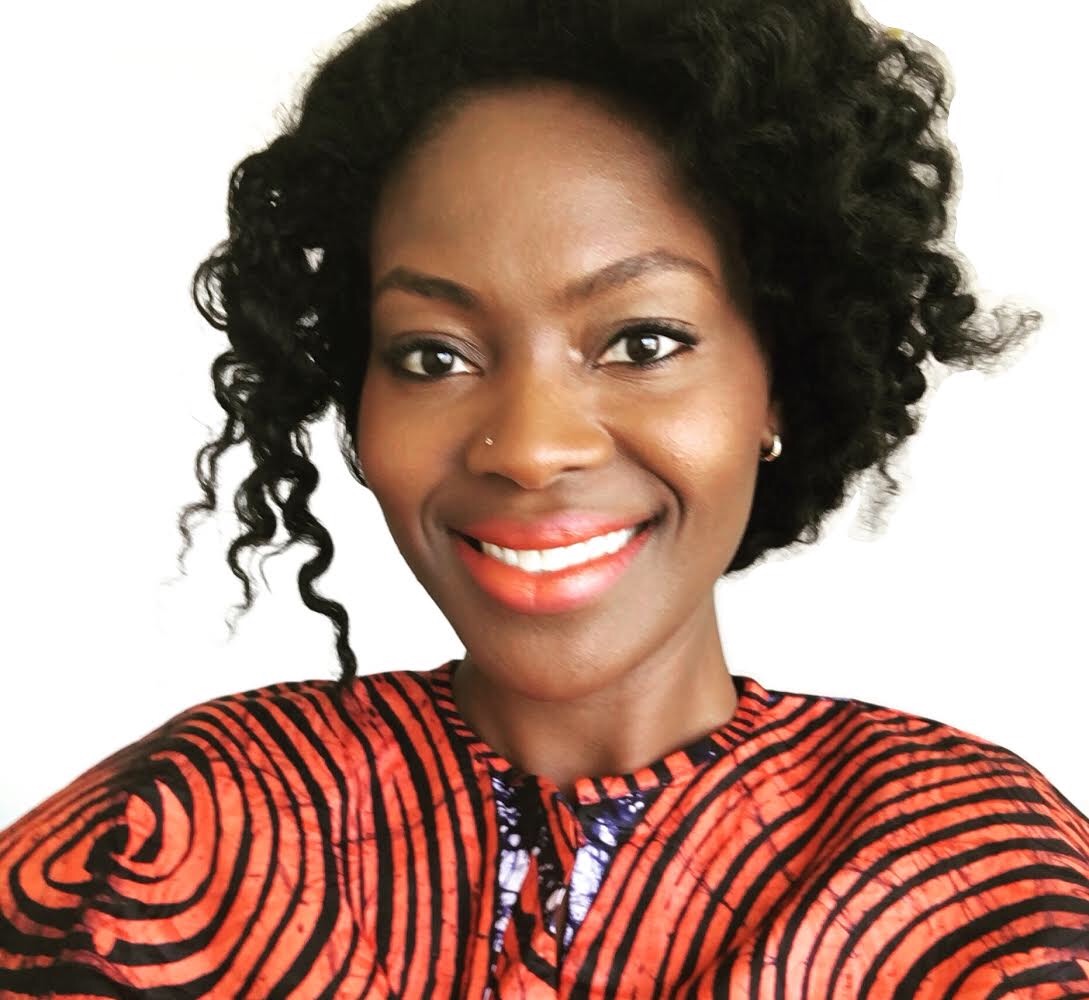
Ololade Aliyu
- Alumni
- Nigeria
- 2019 PhD Sociology
- Wolfson College
I became passionate about cultural displacement among African immigrants while an undergraduate in Computer Science at the University of Missouri. I subsequently moved to New York where I created cultural programming for the African Diaspora while working as a technologist. I decided then to pursue full-time this passion to serve the culturally displaced, and I enrolled in a Master’s in African Studies at Yale. There, I researched Nigerian immigrant identity in New York, Tokyo and Mumbai under the tutelage of renowned Sociologist, Dr. Elijah Anderson. I seek to build upon this work through my PhD at Cambridge, where I will continue to investigate the assimilation trajectories of second-generation Nigerian immigrants, one of the most educated immigrant groups in the US and UK. My research will measure how their cultural identification patterns influence their assimilation into their host societies and/or Nigeria, particularly through the creation of Black cultural capital. With this research, I hope to ultimately leverage the the talents of the highly-educated, resource-rich Diaspora to help increase access to innovative technical and creative education in Nigeria, particularly for the girl child, who is much less likely to receive an education than her male counterpart.
Previous Education
Yale University African Studies (Sociology) 2019
University of Missouri System Computer Science 2004
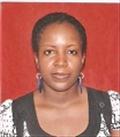
Chioma Ngonadi
- Alumni
- Nigeria
- 2015 PhD Archaeology
- King's College
I was born and raised in Anambra State, southeastern Nigeria and bagged a First Class Honors in Archaeology from University of Nigeria, Nsukka. In 2010, I completed my MA in Archaeology from the University of Dar es Salaam, Tanzania funded by SIDA/SAREC through African Archaeology Network. My MA research was on a comparative study of the pottery from sites in coastal Tanzania. I focused on Mwangia pottery, a variant of Early Iron Working pottery (EIW) and compared it to the subsequent Triangular Incised Wares (TIW) tradition. Analysis of pottery showed that TIW has closer cultural affinities to Mwangia than the preceding traditions (Limbo and Kwale). My love for archaeology has taken me to Comoros Island, Uganda and Tanzania. At Cambridge, my PhD thesis seeks to examine the origin and development of farming over the longue duree in Lejja,southeastern Nigeria. Through ethnography, survey and excavation, my study will establish and outline a cultural sequence with focus on the last 3,000 years and thus analyze broad scale changes in agricultural practices of these communities over this period. I am excited to join the Gates community and I look forward to developing my skills and knowledge in order to have a lasting career in Archaeology.INTERESTS: Reading, writing, volunteering, watching football, interesting movies, scrabble, visiting archaeological sites and museums.
Previous Education
UNIVERSITY OF NIGERIA, NSUKKA
UNIVERSITY OF DAR ES SALAAM
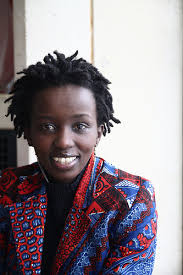
Njoki Wamai
- Alumni
- Kenya
- 2012 PhD Politics & International Studies
- Queens' College
Njoki is an assistant Professor in International Relations Department at Kenya's oldest private university United States International University-Africa. She was previously a Post Doctoral Researcher at the Politics and International Studies department (POLIS). Her research focus is on the tensions between international and local practices of transitional justice in Kenya. At Cambridge, Njoki was the founding president of the Cambridge Eastern African Society (CamEAS) and and the Black Cantabs project which aims to curate the achievements of black Cambridge alumni at www.blackcantabs.com. She is also a co-founder of the African Society of Cambridge University (ASCU).She is an alumnus of the Africa Leadership Centre (ALC) at King's College London. Njoki worked in the non-profit sector in Kenya at Kenya Human Rights Commission and at the Centre for Humanitarian Dialogue. Her research interests include critical transitional justice, critical theory, politics of Africa, African feminisms and development of political thought from Africa.
Previous Education
University Of Nairobi
King's College London (University of L
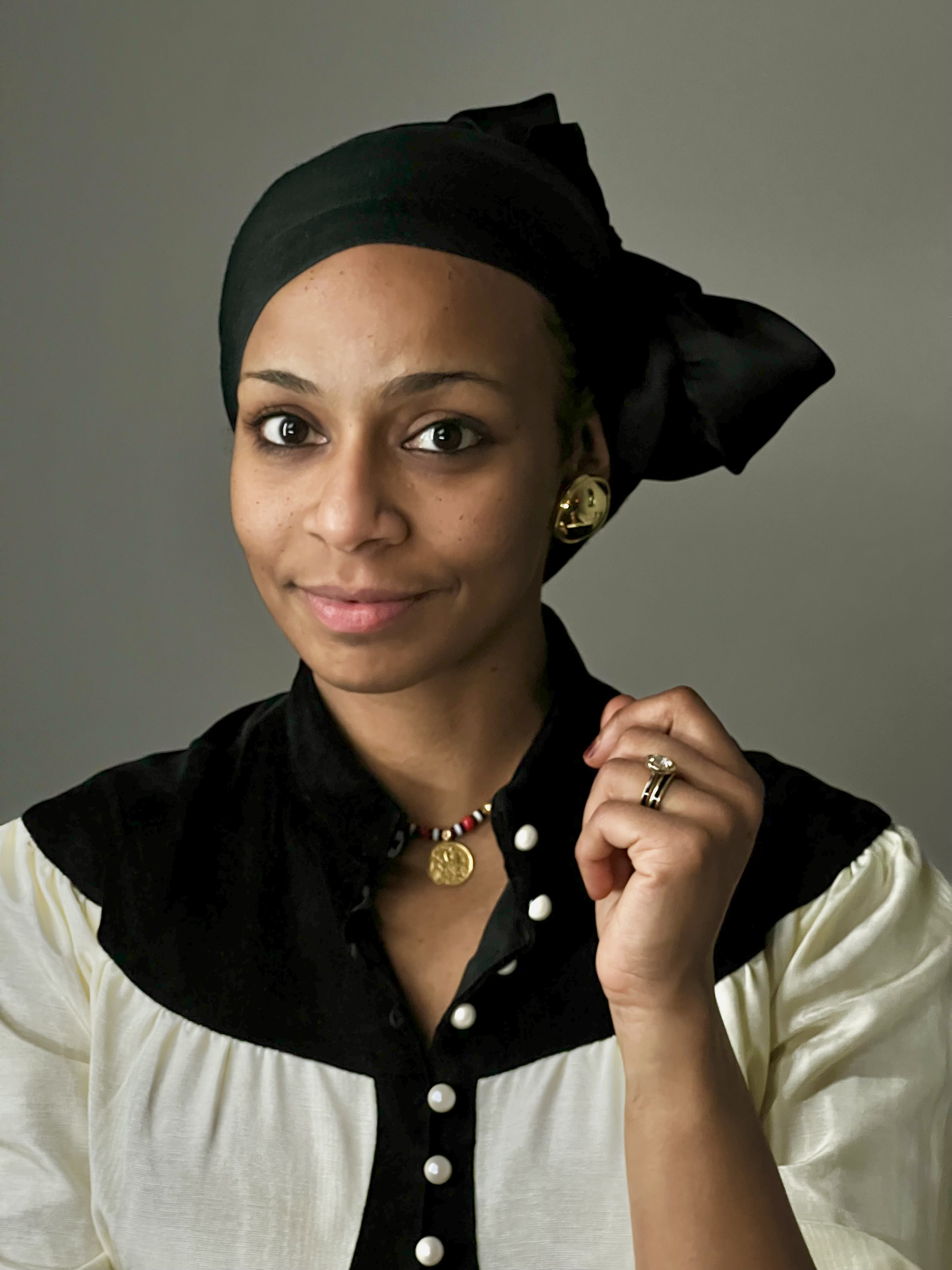
Harum Mukhayer
- Alumni
- Sudan
- 2016 PhD Law
- Pembroke College
I am an international civil servant, a global nomad and a public international lawyer. I come from Sudan, I was born in the UAE, and grew up in Scotland. I have an LLM in Natural Resources Law and Policy and for the past 8 years have been working with the UN in Sudan, South Sudan and Somalia, and volunteering with the Darfur Development and Reconstruction Agency (DDRA). I did my PhD in International Law at the Lauterpacht Centre, and I am a member of Pembroke College. My career focus is on advising governments on the design and implementation of natural resources laws and policies that better serve the poor. Has my mission been successful? In part, yes, but I admit it is still a work in progress. I am grateful to the Gates Cambridge for recognising the importance of my commitment to action.
Previous Education
University of Dundee
Ahfad University for Women
Links
https://www.hmukhayer.com
https://www.linkedin.com/in/hmukhayer

Harum Mukhayer
- Alumni
- Sudan
- 2016 PhD Law
- Pembroke College
I am an international civil servant, a global nomad and a public international lawyer. I come from Sudan, I was born in the UAE, and grew up in Scotland. I have an LLM in Natural Resources Law and Policy and for the past 8 years have been working with the UN in Sudan, South Sudan and Somalia, and volunteering with the Darfur Development and Reconstruction Agency (DDRA). I did my PhD in International Law at the Lauterpacht Centre, and I am a member of Pembroke College. My career focus is on advising governments on the design and implementation of natural resources laws and policies that better serve the poor. Has my mission been successful? In part, yes, but I admit it is still a work in progress. I am grateful to the Gates Cambridge for recognising the importance of my commitment to action.
Previous Education
University of Dundee
Ahfad University for Women
Links
https://www.hmukhayer.com
https://www.linkedin.com/in/hmukhayer

Johanna Riha
- Alumni
- Austria, Tanzania, United Republic of
- 2011 PhD Public Health and Primary Care
- Homerton College
Johanna is currently a Research Fellow at the United Nations University - International Institute for Global Health (UNU-IIGH) working in the new Gender and Health Hub. Prior to this position Johanna worked as a consultant for UNU-IIGH on a gender-based project focusing on the community health workforce in Niger, Mozambique and Zambia. She also completed a consultancy with the African Women’s Development Fund, mapping the scale and key gendered concerns of non-communicable diseases and their effect on women across Africa. Johanna has led research on digital technologies and infectious disease outbreaks and prior to this served as the Policy Director for the All Party Parliamentary Group on Global Health based in London. Johanna has also worked as Lead of Information Management for the National Chlamydia Screening Programme, UK. She holds a PhD in Epidemiology from the University of Cambridge funded by the Gates Cambridge Scholarship, an MSc in Epidemiology from the London School of Hygiene and Tropical Medicine and a BSc in Biological Sciences from the University of Birmingham.











